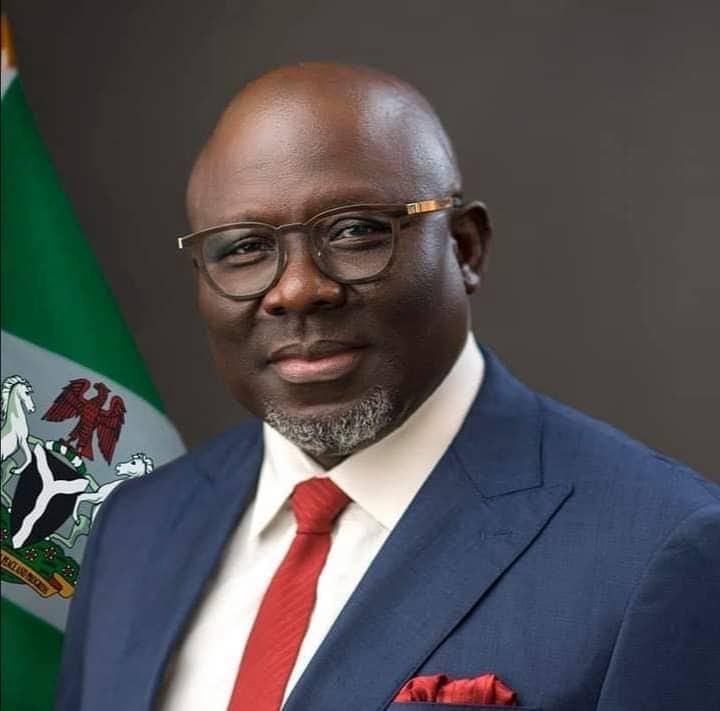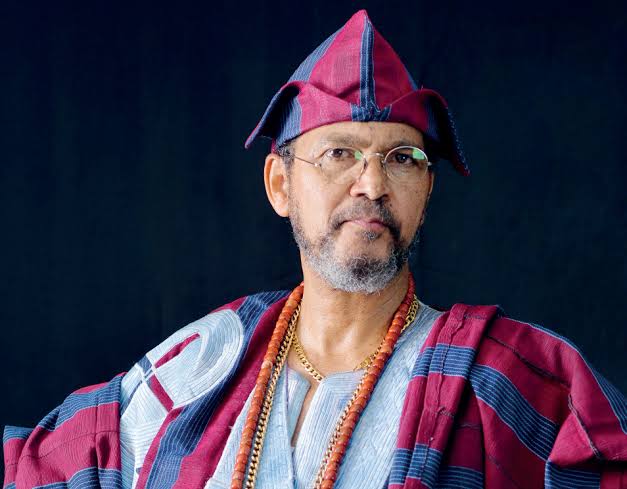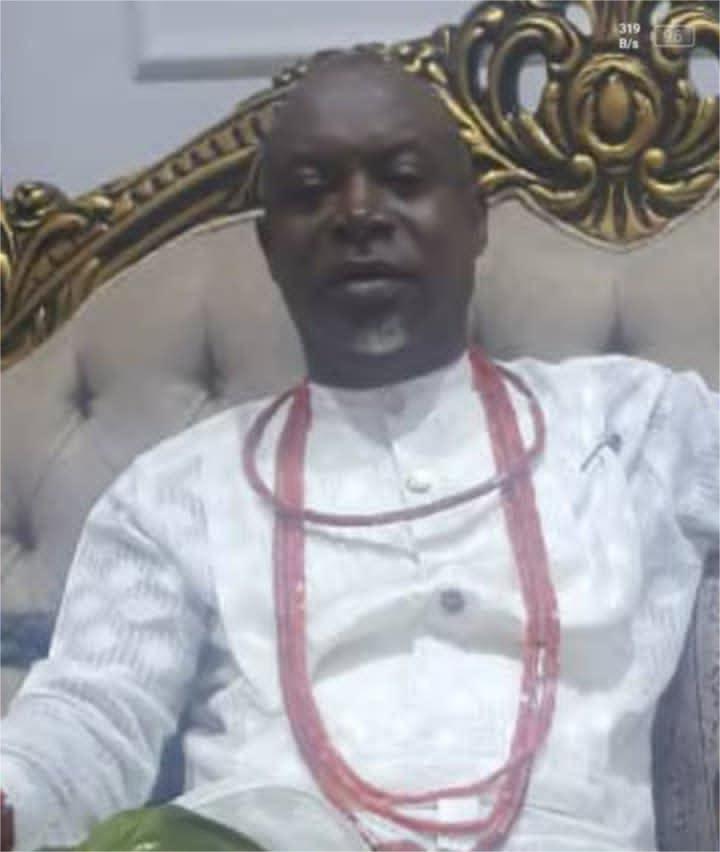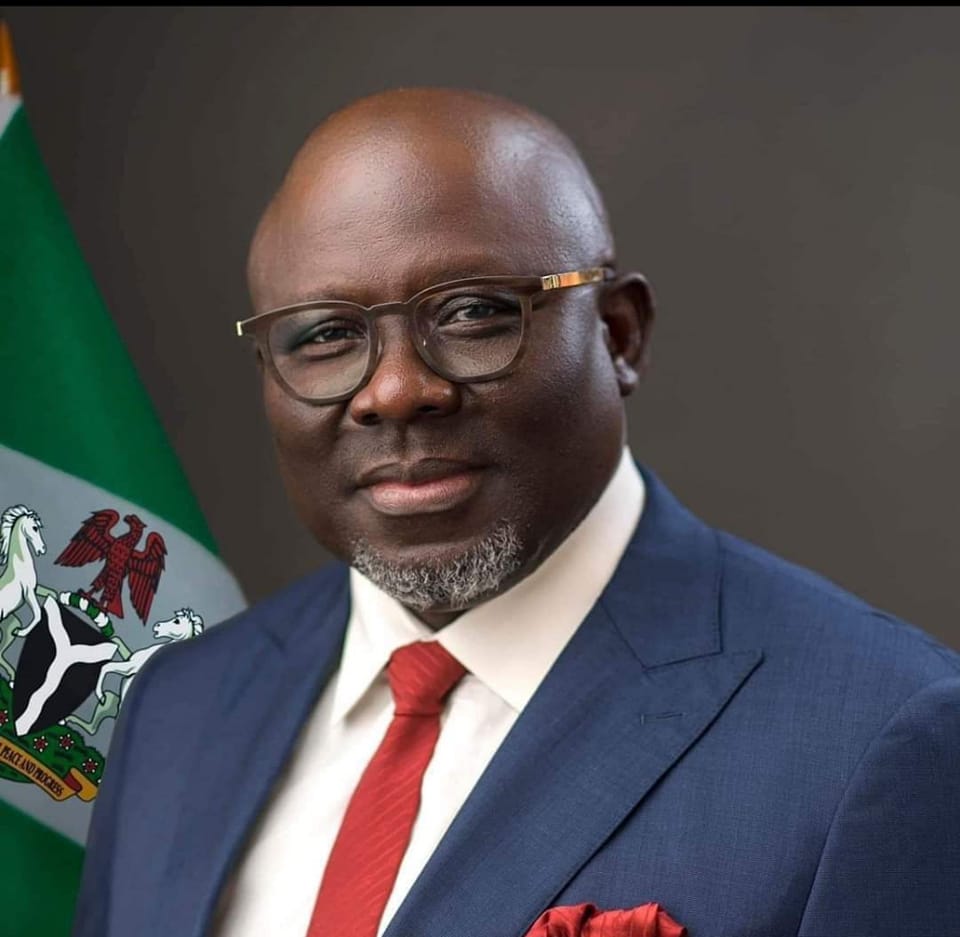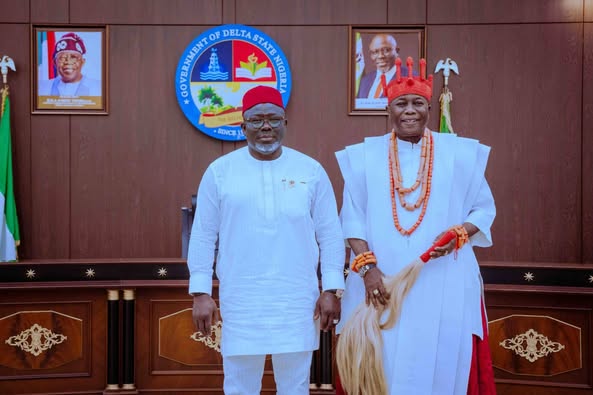Absolute and Constitutional Monarchy: Limits to the power of the Modern King

By Johnson Akporikien
A monarch or King is a royal personage who exercises traditional authority or reigns over a kingdom. The concept of monarchy existed in pre-historic days as recorded in several historical accounts and even the Bible. The Kings were mostly hereditary deriving their authority from the supernatural powers, Jehovah God in Bible story and a vast array of pantheon or gods in African history. The duties of these monarchs particularly in Africa are to protect and project the African cultural heritage which embraces all aspects of African life. It involves the people’s history, philosophy, poetry, psychology, medicine and health care delivery, ecology, various arms of the traditional government, ethics, economic and social activities, education, military strategies, mathematics (especially numerology) astrology, arts in its various forms and even including science and technology. The King organizes the people for communal action, promotes order, exercises spiritual/judicial powers and encourages hardwork, social values, enterprise, ethics and good conduct in the society.
Monarchs all over the world command traditional authority. Traditional authority (also called “traditional domination”) is when a person or organization has power or influence derived from long-standing customs, beliefs, or traditions. Power from traditional authority comes from people accepting the system's legitimacy for a long period. Beyond the socio-economic weight of the traditional rulers, they equally played a major role in matters of conflict resolution, dispute management and security. In pre-colonial Nigeria, the societies had series of mechanisms of controlling and managing conflicts, varying from one community to another. Traditional rulers play useful roles in mediating between the people and the state, enhancing national identity, resolving minor conflicts and providing an institutional safety-valve for often inadequate state bureaucracies.
The royal prerogatives of the King of England, for instance, include the powers to appoint and dismiss ministers, regulate the civil service, issue passports, declare war, make peace, direct the actions of the military, and negotiate and ratify treaties, alliances, and international agreements. This implies that the King exercise far reaching authority in some climes. In Saudi Arabia, the King is the president and ultimate ruler of the state. He commands absolute power. Saudi Arabia is an absolute monarchy.

ABSOLUTE MONARCHY is a form of monarchy in which the monarch rules in their own right or power. In an absolute monarchy; the king is by no means limited and has absolute power, though a limited constitution may exist in some countries. These are often hereditary monarchies. In Saudi Arabia, the King is the law and his words are final. He is subject to no other authority or form of government unlike in Africa where most Kings operates under the sovereignty of the government of the state or country. In Nigerian monarchy, although they do not have formal political power or constitutional role in government, in many cases they continue to command respect from their people and have considerable influence in their community.
However, what many over-zealous, uninformed acolytes seek for some Kings in Africa is absolute monarchy where the King is said to command divine right and absolute power. In European history, it is a political doctrine in defense of monarchical absolutism, which asserted that kings derived their authority from God and could not therefore be held accountable for their actions, inactions and pronouncements by any earthly authority such as a parliament. The divine right of kings, or divine-right theory of kingship, is a political and religious doctrine of royal and political legitimacy. It asserts that a monarch is subject to; no earthly authority, deriving his right to rule directly from the will of God.
Truth is that this happened in pre-historic age, and a few modern instances where there were or are no other authorities outside that of the King. In those days, the King decrees a thing and it must be established. His words were laws because there were no other sources of laws and authority known to the people. He assumes the place of God among the people, he is viewed with absolute reverence and no man dares talk once the King has spoken, even when whatever he says is wrong. The powers of the cosmos, all the forces of good and evil in the land are compelled to bring his words to pass. If he pronounces death on an individual, he dies. That is absolute monarchy almost without checks. The king as priest and seer makes him to perform religious duties too.

Even as strong and powerful as the absolute monarchs were or may still be, there are the authorities of the Chief priests in African societies to which he relates with awe. The Chief priest is the interpreter of the minds and whims of the unseen forces, controllers of the cosmos or gods. They see beyond the ordinary, hear from the gods, warn of impending danger, check the King when he takes steps that are not in tandem with reality, consults the oracle, interprets hidden signs and unrevealed truths, they are the eyes and ears of the gods, they bring healings when disaster ravages the land and they refuse to speak except they hear from the gods. Where the King combines both roles of King and priest, he assumes supernatural identity. His actions are sacred, hallowed and divine. He is reverenced beyond the scope of ordinary deference, esteem and value. That paves way for the divine rights of the King. The Chief priest of Udu Kingdom for instance is the Okpruyovwi of Udu Kingdom. He too crowns the new King on the demise of a King.
From the foregoing, it is obvious that the chief priests are the mystic mediators between the human world and the spirit world and act as healers, scribes, teachers, diviners and advisors of the King and people in the community.
The Christian notion of a divine right of kings is traced to a story found in 1 Samuel, where the prophet Samuel anoints Saul and then David as king over Israel. In the Jewish traditions, the lack of a divine leadership represented by an anointed king (beginning shortly after the death of Joshua) left the people of Israel vulnerable, and the promise of the "promised land" was not fully fulfilled until a king was anointed by a prophet on behalf of God.
The effect of anointing was seen to be that the monarch became inviolable, so that even when Saul sought to kill David, David would not raise his hand against him because "he was the Lord's anointed". Raising a hand to a king was therefore considered to be as sacrilegious as raising a hand against God, and stood on equal footing as blasphemy. In essence, the king stood in place of God and was never to be challenged "without the challenger being accused of blasphemy" - except by a prophet, which under Christianity was replaced by the church.
It must be reiterated that this absolute authority of the King thrives where there are no other authority outside that of the King. In those days, the King is the President or Governor and is subjected to no other authority. Kings were therefore infallible. Modern monarchy operates under Local Government Chairmen, Governors and presidents of nations making absolute monarchy almost impossible in many realms. So to accuse the people of blasphemy because they complain of a wrong step taken by a King is to live in a grave error. In the ancient Kingdoms, the King is the law and court, today, Kings are compelled to appear before conventional courts to face sundry charges were necessary. They can be convicted and sentenced to prison. Times have changed and the way and manner kingdoms are managed have changed too. The earlier we accept this reality, the better.
CONSTITUTIONAL MONARCHY: What operates in many lands and kingdoms is constitutional monarchy. A constitutional monarchy is a form of government in which a king or queen reigns with limits to their power along with a governing body (i.e. Parliament), giving rise to the modern adage "the Queen of England reigns but does not rule". Checks and balances are in place to moderate, restrain and bring under control the overbearing powers of a King. Power corrupts, Lord Acton says, and absolute power corrupts absolutely. Checks and balances are mechanisms put in place to ensure the King follows the law and does not exceed his power. They ensure the people are ruled by the law and not the whims of the King. In another sense, they are called limited monarchies.
Most of the monarchies that exist in the world today are limited monarchies. All over the world, it is strongly accepted that nobody, not even the king, is above the law. And the law is made for the people not the other way around. The rules and laws seek to prevent the king from exploiting or over-reaching his power, and placed limits of royal authority by establishing law as a power in itself. Though Kings command tremendous love, awe, reverence, authority, power and influence in their kingdoms, time has acted on those powers and rights.
For instance, according to Benin tradition, The Oba of Benin covers his mouth because we are not supposed to see his teeth when he talks. He is also the supreme authority and whatever he says is final and cannot be opposed. The people of Benin believed that their Oba was a god. He lived apart from the ordinary people inside the royal court in Benin City. The Oba held meetings with his officials and he led religious ceremonies. Yet in all his majesty, he must operate within the confine of the laws as enshrined in the constitution of the Federal Republic of Nigeria.
The mode of succession also invests greater honour and dignity to the throne. While in time past most monarchies were hereditary, time has changed and what is obtainable in many land and climes are elective monarchy from different ruling houses. Hereditary monarchies attract greater awe, stability and respect because ascension to the throne in most cases are outside the control of mortals. The gods chose a particular family for royalty and anyone who dare oppose the decision of the gods with regards the kingship is left to contend with the gods as he may be exposed to dire consequences. A man who ascend the throne through the preferences of the gods tend to rule with awe, fear and deference to divine order, subjecting every of his moves and decision to spiritual evaluation.
Elective monarchies derive legitimacy from the authority of the kingmakers and the people. A kingmaker is a person or group that has great influence on a royal succession, without themselves being a viable candidate. Kingmakers may use political, monetary, religious, and military means to influence the succession. The tussle for succession often whittles down the influence of the King and to arrogate absolute powers to such King is a grievous error that must not be entertained. Most modern monarchs do not command absolute power. Even the Oba of Benin, in all his glory and majesty, does not command absolute power because of the influence and place of government of the state and federation which can intervene whenever he is seen to have erred. In time past, nobody challenges the powers of the Oba or abridge his directive. Today,, a state governor can dethrone any king.
Time has changed and we must embrace the change to move forward. Death and the Kings Horseman’, a play by Wole Soyinka based on a true life event that took place in Western Nigeria during the colonial era precisely 1945 illustrates how the horseman of a King was prevented by the colonial masters from committing ritual suicide. The custom and tradition was that it is the duty of the king’s horseman to follow his King on his death as his royal escort. The horseman considers it an honour to die and escort the late King to the great beyond. It was the practice for many years before the colonial masters put an end to it when the death of Elesin was prevented in 1945. That is limit to tradition and custom. There are aspects of our culture that is barbaric, primitive, unprogressive and unrevealed. These have been tamed overtime by government interventions. Most Kings cannot reinvent them without the assent of the people.
I have gone this length to explain the limit to the powers of modern Kings. Their authority must be subject to the crucible of popular scrutiny and general acceptability. Traditional administration no longer carries the force and absolute powers of ancient kings whose powers are according to divine order or the whims of the gods. If the Udu people are not comfortable with any aspect of the Union of Udu Communities’ constitution, you cannot force it on them. The laws are made for the people and not the other way round. To say the King has spoken and it must be so even if the entire Udu is burning is to live in the forgotten and forbidden past. Many Kings in contemporary societies derive their power from the people and thus, must listen to the people in taking decision. Absolute power corrupts absolutely.

THE UUC CRISIS: The present Udu crisis over the leadership of the Union of Udu Communities call to mind the events that led to the fall of Kurumi, a great warrior in Yoruba land and in fact the generalissimo, (Aare Ona Kankafo). He elected to go to war against the Alafin of Oyo over the monarch’s decision to change the tradition of the time which prescribed death for the heir apparent on the death of the King. As preparations for war peaked, he looked around himself and asked his close associates: My brothers at arms, tell me truly, am I in the wrong in this matter? Am I? What is man without a knowledge of himself? To this writer, Kings should ask questions about their actions too.
It was a good thing Kurumi asked these salient questions but what he got as response was not very reassuring. Moreso, the oracle did not support the war but blinded by his unbridled ambition to stay the course, he decided to go ahead. Then some of the warriors confronted him thus:
Epo: What is all this about the land going to war?
Akiola: You did not consult with the people
Fanyaka: When a man has placed himself far above his people, he is ready to gamble with their lives
Asegbe: You talk so much about breakers of tradition
Amodu: You have grown too powerful, my Lord
Fanyaka: It is better to be loved than feared
Epo: Answer my questions, great one
Kurumi: Do you dare…
Akiola: You will not bully us, Old one
Fanyaka: Answer the question
Epo: The land is going to war?
Kurumi: Yes, Iyaiye is going to war!
Ariola: Whose war?
Asegba: Who decided?
Epo: And why?
Fanyaka: Answers!
Kurumi: I discussed it with Balogun Ogunkoroju…
Akiola: Under pressure
Amodu: You have grown too powerful, my Lord
Kurumi: Did Ogunkoroju say I brought pressure to bear on him?
Epo: He did not have to say anything…
Against the position of his warriors, Kurumi went to war and did not return. The rest is history.
As we navigate our ways out of the present impasse in the leadership of the Union of Udu Communities, Udu Chiefs should take to heart the message of this piece so as to give well informed and realistic advice to His Majesty that can move Udu forward. Udu is not a banana republic where absolute powers hold sway. The King is father to all. Those playing the King’s ‘most loyal subjects’ in order to paint others black because the current disorder favours them may well be the problem of the Kingdom. Let the truth prevail. Somebody must learn to speak truth to power.
THE OVIE-IN-COUNCIL: Let me use this medium to correct one wrong impression about certain provisions in the UUC constitution which presuppose that the Ovie-In-Council may call off the election and handpick any of the aspirants for any position in question when the peace, unity and security of Udu is threatened by the planned election. The operational words here, as had been argued in an earlier piece by another writer are ‘peace, unity and security of Udu’. However, aside from the argument of those operational words which the promoters of non-elections do not wish to address their minds to, they, those self-acclaimed most loyal chiefs and subjects of the Ovie, have also failed to acknowledge the fact that the Ovie of Udu is separate from the Ovie-in-Council. A pronouncement from the Ovie is not the decision of the Ovie in Council.
As those emergency lawyers who now pride themselves as advocate of the UUC constitution are celebrating the ALLEGED decision of the Ovie to impose a candidate on Udu based on the constitution, they should not fail to appreciate the fact that the Ovie-in-Council is an institution comprising of 4 chiefs from each of the 7 ruling houses in Udu plus the Otota of Udu Kingdom, Okpruyovwi, Odede Ade and the Ovie as Chairman. UUC constitution did not say Ovie can decide against election but the Ovie-in-Council may so do when peace, security and unity of Udu is at stake. As at the time the UUC elections were held there were no documents or correspondences to suggest that the Ovie-In-Council took any decision and communicated same to the candidates. What was being celebrated was a comment on the report of the screening committee, ALLEGEDLY made by the Ovie of Udu Kingdom. That comment is not and can NEVER equate the position of the Ovie-In-Council.

The Council has been depleted by death and no replacement made in recent time. As at today, Owhorhu ruling house has two members in Chief Luke Ogedegbe and Chief Mrs Elizabeth Odjugo. Uloho has only Chief J.B Onoherhe, Adadja has only Chief Benjamin Emuroyibo, while Ovwian has Chief Barr Mrs Elizabeth Okene and Chief Steve Sokoh and Orhuwhorun has only Chief B.J Egbatamah. For Okporua we have only Chief Godwin Notoma while Owhrode has no member in the council as at the time of the elections. The implication is that the Council of 28 members from the ruling houses has only 8 members which do not form a quorum.
Those who are relying their arguments on the UUC constitution should understand further that since the law is what they are celebrating, it behove on all to equally follow the gazette that specify how the Ovie-In-Council must be constituted. It is not the place of the Ovie to handpick members of the council rather the ruling houses must elect their members and where a non-Chief is elected, he automatically gets a Chieftaincy title. Those rushing to take chieftaincy titles may not get elected into the council afterall if the ruling houses must take decision on this matter. The law does not say only Chiefs can or must be elected to the council. The question I ask again is, which Ovie-In-Council took the decision to impose a candidate on Udu people when the existing one is not properly constituted and the Ovie as an individual cannot replace the council? Udu arioma!
Udu kingdom exists for the people and their voices must be heard too in what pertains to their wellbeing. The Union of Udu Communities should not be promoted as an appendage of the palace. Every officer of the Union must bear true allegiance to the throne and hold the King in awe. The Ovie of Udu Kingdom must not appoint a president general before earning the respect and reverence of UUC. Udu belongs to all. The people have spoken, let our day break!
May our king live forever!
…Johnson Akporikien, an Udu son, writes from the Delta State Polytechnic, Ogwashi-Uku, Delta State (johnsonakpors007@yahoo.com)
Related #Tags
Urhobo National Affairs
